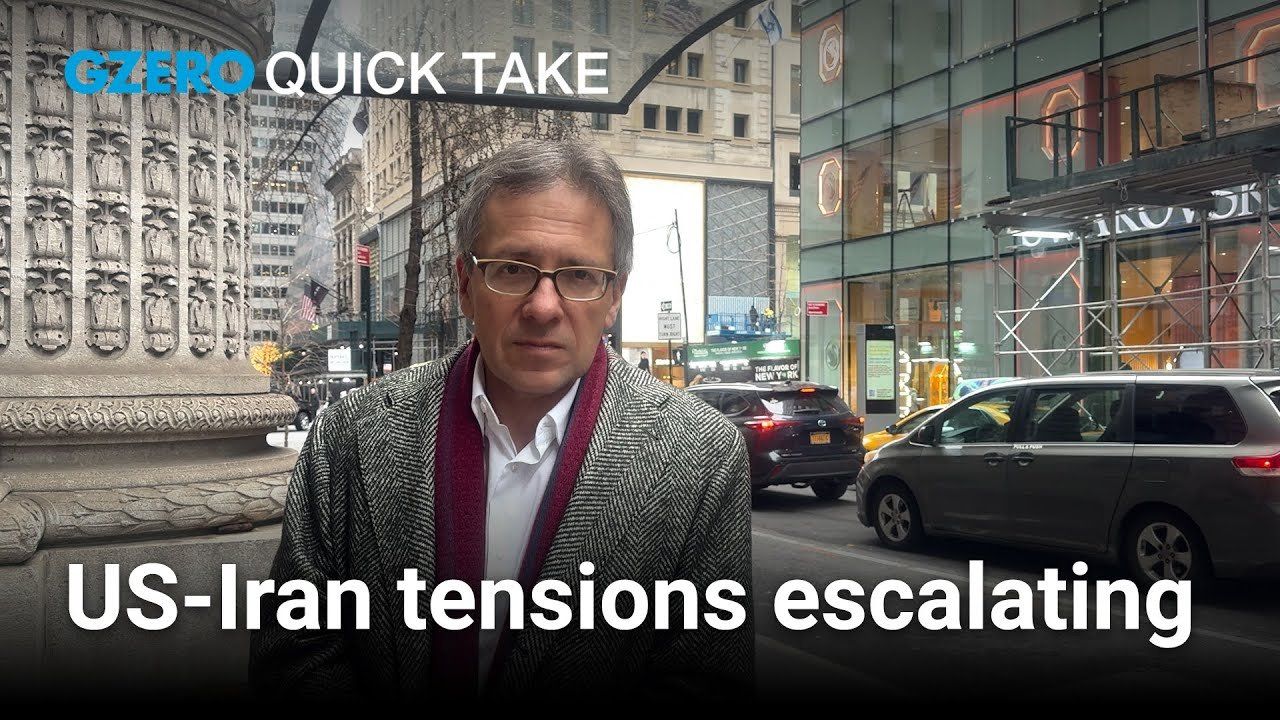Quick Take
US-Iran tensions escalate after deadly drone attack

How will the US respond to Iranian proxy attacks? | Ian Bremmer | Quick Take

Ian Bremmer's Quick Take: Hi everybody, Ian Bremmer here and a Quick Take to kick off your week right in midtown Manhattan, New York City. And the Middle East war continuing to expand as we have been convinced it would. This was this weekend, really the nightmare scenario for the Americans that given all of the Iranian proxy attacks against shipping and against US troops in the region, but eventually they would get through and kill some.
And that is exactly what happened. Three American servicemen killed, dozens injured, and now the Americans have to respond. That response will almost certainly be against Iranian forces to some degree directly. Whether or not that means hitting Iranian territory, that's an open question. But even though the Iranian government denied it, the United States has been very clear, “these are Iran supported attacks.”And while I'm fairly comfortable saying that the Iranians didn't likely order these attacks directly, they're certainly comfortable with the fact that they're going on. They're providing real time intelligence to the groups. They're providing real time weapons to the groups. So it's not like they had nothing to do with it.
Now, the United States doesn't want war with Iran, you know, no holds barred across the region. The Iranians don't want war with the US. But that doesn't mean war is not going to happen. And we're certainly taking a step closer to that right now. Will American strikes be sufficient to stop Iranian proxies from hitting the United States? That's very hard to imagine. It might be uncomfortable with it, but I can't see the Iranians cutting off all of these groups just on the basis of the likely American strikes that are coming next, which means even though we're escalating, we're still not yet at sort of a place where anyone is panicking enough to start restraining and reining in the continued escalation that we're seeing.
The other side of this is we do see the United States working very hard with Qatar and the Israelis to try to facilitate a breakthrough on the hostages. And the Israelis are willing to engage in ways that they were not, even a couple of weeks ago, willing to take a deal that would not be as attractive for them. For example, a longer ceasefire in the strikes in Gaza in return for the hostages being released. In part, the Hamas has been unwilling to engage and has been unwilling to give very much. But that could change if the Iranian government now starts pressing them hard. And that is where we could see a bit of a breakthrough, especially if the United States response is serious to what we've just seen over the weekend.
So are we going to see the Iranians stopping support of the proxies in the region, stopping the attacks? No. But might we see a temporary ceasefire and a breakthrough on the hostage side? That looks more likely to me in the coming days and weeks than it was last week. So, you know, it's dangerous environment. We're continuing to see escalation, but there's certainly lots of moving pieces and not everybody wants to see war.
That's it for me. I'll talk to you all real soon.
1,170: The number of high-rise buildings in Kyiv that were left without heating following a barrage of Russian attacks last night on Ukraine’s capital and its energy facilities, per Kyiv Mayor Vitali Klitschko.
U.S. President Donald Trump and Japanese Prime Minister Sanae Takaichi hold up signed documents regarding securing the supply of critical minerals and rare earths, at a bilateral meeting at Akasaka Palace in Tokyo, Japan, October 28, 2025.
Representatives from the European Union, United Kingdom, Japan, and others will meet in Washington this week to discuss a strategic alliance on critical minerals.
80,000: The number of people estimated to be in the streets of Czechia on Sunday to show their support for President Petr Pavel after he blocked the nomination of an environmental minister who performed the Nazi salute and posted Nazi memorabilia.
The US has started handing $1,000 to the bank accounts of newborn babies. But can policies like this one help boost sagging birthrates in advanced democracies?